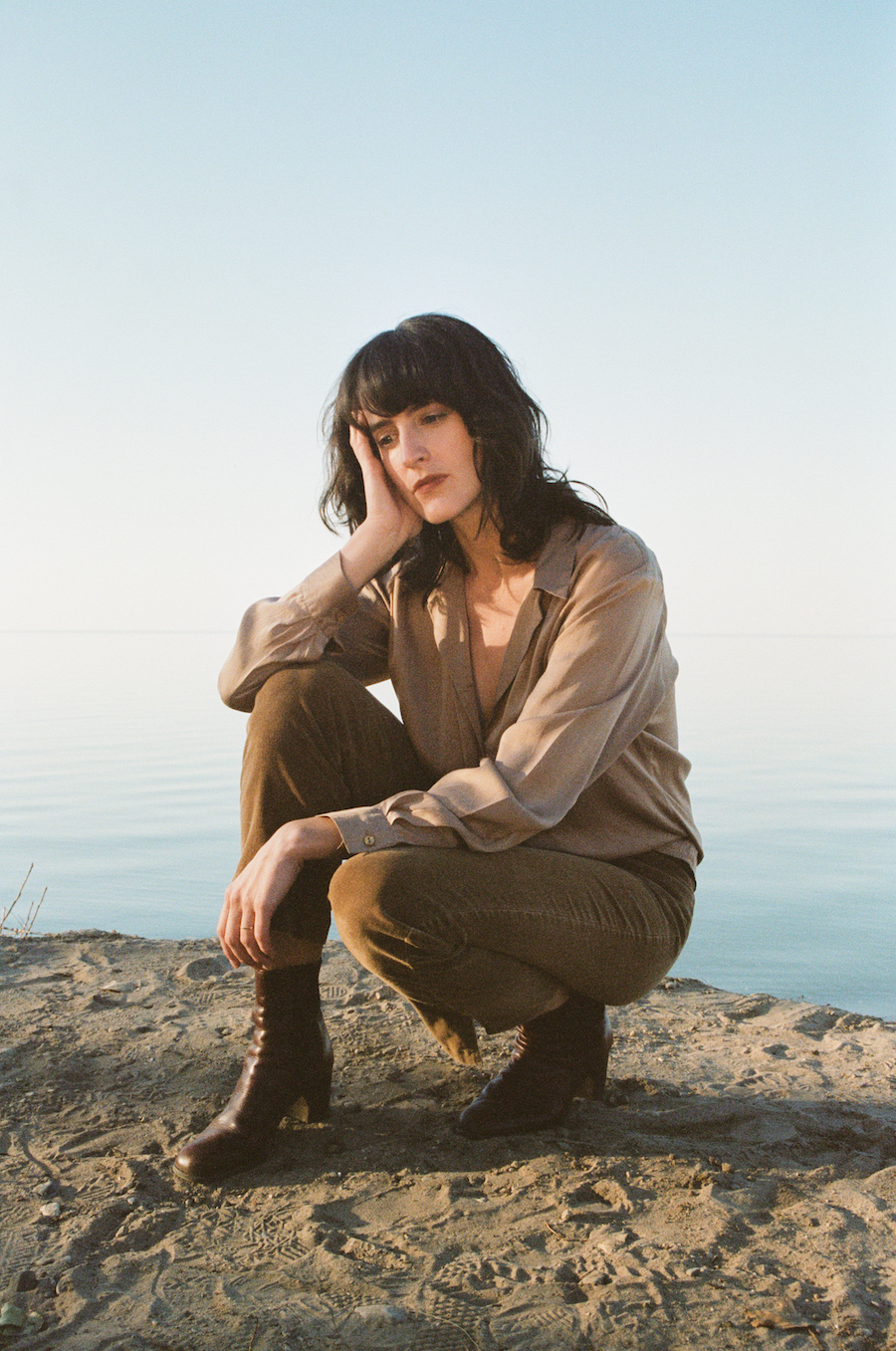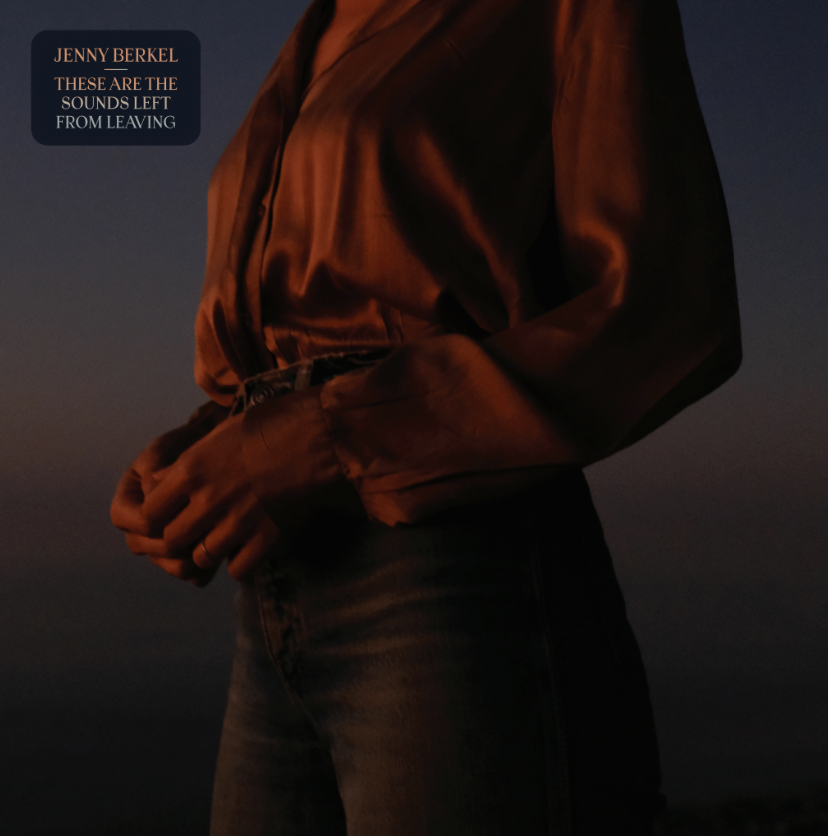MENU


Jenny Berkel
Story
“I wrote the album in a tiny apartment, at a time when everything felt big and overwhelming,” says poet and songwriter Jenny Berkel about her new album, These Are the Sounds Left from Leaving, out May 13 on Outside Music. She was living in a brownstone walk-up full of radiant light and the ever-present soundscape of a leaky bath faucet. It was a sudden move at the time—a spontaneous departure from touring, bustling city life, being many things to many people—that landed Jenny in a space of self-imposed stillness.
“The songs themselves are a study of proximity, bringing big fears into small spaces,” says Jenny, reflecting on the album. “They’re intimate examinations of a world that often overwhelms.” Each song is set in the micro-world of a keen feeling observer, trying to parse a mindful moment in a setting where it feels impossible to drop a truth anchor—a post-Trump, heavily gaslit world where perceptions of reality remain distorted. “Kaleidoscope,” the first single from the album, is a dissonant and poetic consideration of the importance of care and precision in language, both in the broader political landscape and in intimate emotional ways. From the heart-wrenching confusion of interpersonal manipulation, it extrapolates a collectively felt disorientation at the kaleidoscopic swirling of disinformation and misinformation. “Lavender City” is a more intimate look at lies. A breakup song with crescendoing strings, insistent percussion and hopeful harmonies, it’s about gaining the capacity to see clearly again – but with the painful entailment of anatomizing the lies that drew you in. Looking beneath them to see what’s inside.
Songs like “July” and “Just like a River” embody a similar dichotomy, but feel more like mellow meditations; they are recreations of moments where small, specific reveries gave way to more sprawling contemplation–but in an appreciably peaceful and illuminative way. “July started as a tiny chorus written for somebody I thought I could maybe love someday,” Jenny says with a smile, in a conversation about the seeds of the album’s singles. “It was a hot summer, one that reminded me of being a small child in the middle of July in southwestern Ontario. It’s a love song, but it’s also a nostalgic song that expresses how memory shifts and shapes you, and how the stories we tell become who we are.”
The album features contributions from critically acclaimed folk duo Kacy & Clayton, and string arrangements by Colin Nealis (Andy Shauf)—and for the first time, Jenny took on a production role, co-producing alongside Dan Edmonds and Ryan Boldt (The Deep Dark Woods). “I wanted the songs to feel like living creations that capture a living moment,” says Jenny about envisioning the recording process. “I wanted that theme of big fears in small spaces to be heard and felt as a coexistence of intimacy and menacing permeability.” Recorded live off the floor at the Sugar Shack with engineer Simon Larochette, the album sparkles with its intended intricacies. Musically, it feels both close and expansive. Each song unfolds like a widening web of poetic associations, narrated by nostalgic piano, pondering strings, glittering guitars—and Jenny’s hauntingly immersive vocals. At times, songs end with an unravelling, the music splintering apart into disintegration like a lingering open question. Warm and dark, soft with stabs of madness, These Are the Sounds Left from Leaving is a cohesive collection of spare songs that bloom lushly with detail.
Whether you’re reading Jenny’s poetry—in her debut chapbook Grease Dogs with Baseline Press—or listening to her songs, you’ll experience her drawing layers of far-reaching concern into particular moments, like concentric waves rippling inward toward a lone cast stone. These Are the Sounds Left from Leaving showcases the perspective of a unique storytelling artist, with an evocative practice that hinges powerful narratives on the intricacies of a multifaceted musicality. A songwriter immersed in poetry, a poet immersed in music—her work in all its forms is an invitation into a world of relatable introspection, in which even absences can be sculpted into vividly memorable verse.


